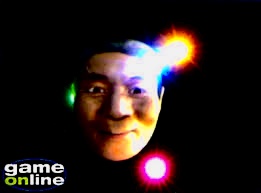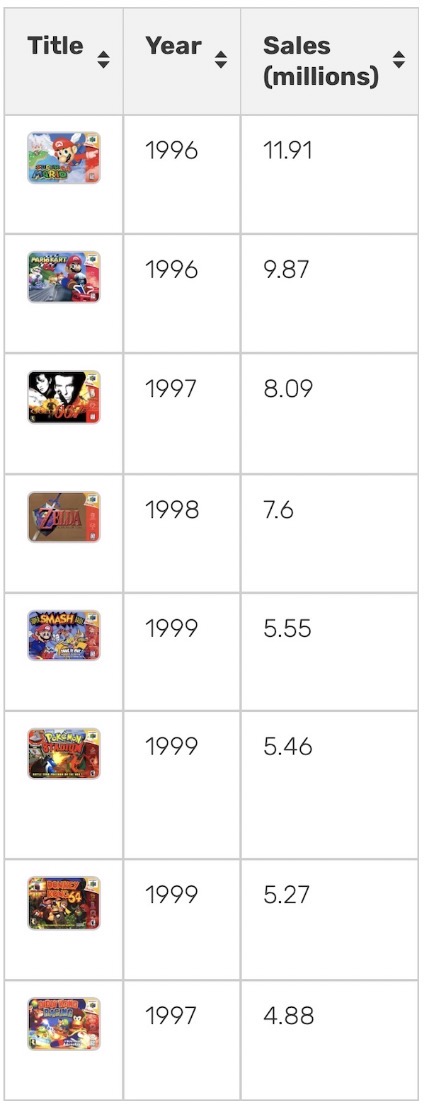RetroAV
Member
Get the facts straight — Sega's success in Europe (and earlier with the Master System) came mostly because Nintendo barely showed up there. That's not strategy; that's opportunity. The real uphill battle was in the U.S., where Tom Kalinske and Sega of America took Nintendo's 90% market share and cut it in half — something Sega Japan or Europe never came close to doing.I'm sure it was Japan that Nintendo had 90% Marketshare and hey SEGA Japan was able to crush that with the Saturn, So you can shove Tom's so-called miracle up his ass.
And I'm sorry to break this you.. SEGA Europe was enjoying massive success with the Master System long before bulling shitting Tom came online to SOA.
Sales exploded not thanks to TOM, but Sonic and most people know it.
And as for "Sega Japan crushing Nintendo with the Saturn," come on — that only happened in Japan. Globally, the Saturn got destroyed by PlayStation and N64. That's not "crushing," that's surviving one round before being KO'd.
Also, let's not forget — Sonic was Kalinske's move. He's the one who decided to pack Sonic with the Genesis against Sega of Japan's wishes. Without that decision, Sonic never would've become the system-seller that put Sega on the map. So if you're giving Sonic credit, you're giving Kalinske credit whether you like it or not.
Sales don't equal quality — they equal market reach. Sega's games didn't underperform because of "design flaws," but because they targeted a different kind of player. Nintendo has a multi-generational fanbase that treats the brand like family tradition, which guarantees a baseline of massive sales no matter what. Sega's best work focused on speed, style, and challenge over mass appeal — and that's not bad design, that's creative identity. The real difference isn't quality, it's audience and influence.Don't go down that road, this theory that Nintendo games are good just because fans say they are good is false.
If 10 million people said VF2 was a good game, that wouldn't make it good. People's minds crave coherence; the design problems of these games are real and undeniable, which is why they don't sell well.
That's easy to say in hindsight, but Sega of America was operating in a market Nintendo had locked down for nearly a decade. They didn't have the luxury of relying on existing IP the way Nintendo did, so they had to lean into sports realism, edgy marketing, and cultural timing — and it worked. Calling it "smoke" ignores the fact that they actually pulled off the impossible: breaking Nintendo's near-monopoly. If it was really that simple, everyone else would've done it too — but they didn't.Sega of America too was very successful with the same strategy during the Mega Drive/Genesis days, what I'm saying is that a main focus on sport simulations by the first-party is a very shortsighted strategy for the long survival, especially if we are talking about a first-party driven console manufacturer.
As Sony did, and as EA aimed over a long stretch of time, a resourceful new/old competitor could steal away/keep a big marketshare with relatively ease because a lot for sport simulation revolves around licenses, thus having money could bring you far almost overnight.
When the real battle of the mid '90s was a challenge between the different core ideals of the incumbent smaller first-party driven console manufacturers with a gaming core, in which first party hardware and software are interwined, and resorceful big corporations adopting a third-party driven model based around a pure concept of platform it's easy to identify SoA main focus on sport simulations/licenses a liability long (really medium) term.
Every manager in the industry knew that since the beginning (or almost) of the gaming industry the sport genre was a main driver for the North America market (and Europe) and thus you can find, for instance, Nintendo investing in sport games with also licensing (Ken Griffey, Kobe Bryant) however for Nintendo these sport simulations were never positioned as the main draw and played a second fiddle role behind first-party tentpole releases that were almost always from in-house owned IPs.
As with most practices employed y Sega of America it was "more smoke than meat".
Anyways, Sega's biggest mistake with the Saturn was Sega of Japan shunning Tom Kalinske, the guy who made the Genesis a hit.
Kalinske understood the Western market. He made Sega cool, beat Nintendo in the U.S., and wanted a clean 3D-focused console with a smart, coordinated launch. Sega of Japan ignored him, redesigned the system in secret, and pulled the infamous "surprise early launch" stunt that pissed off retailers and devs alike.
The result? A $399 console that was hard to develop for, poorly marketed, and dead on arrival once Sony dropped the PlayStation at $299.
If Sega had backed Kalinske — kept the proper launch timing, simplified the hardware, and built a real Western strategy — the Saturn might not have "won," but it damn sure wouldn't have crashed the way it did.
Once they stopped listening to the guy who saved them, Sega stopped winning.









